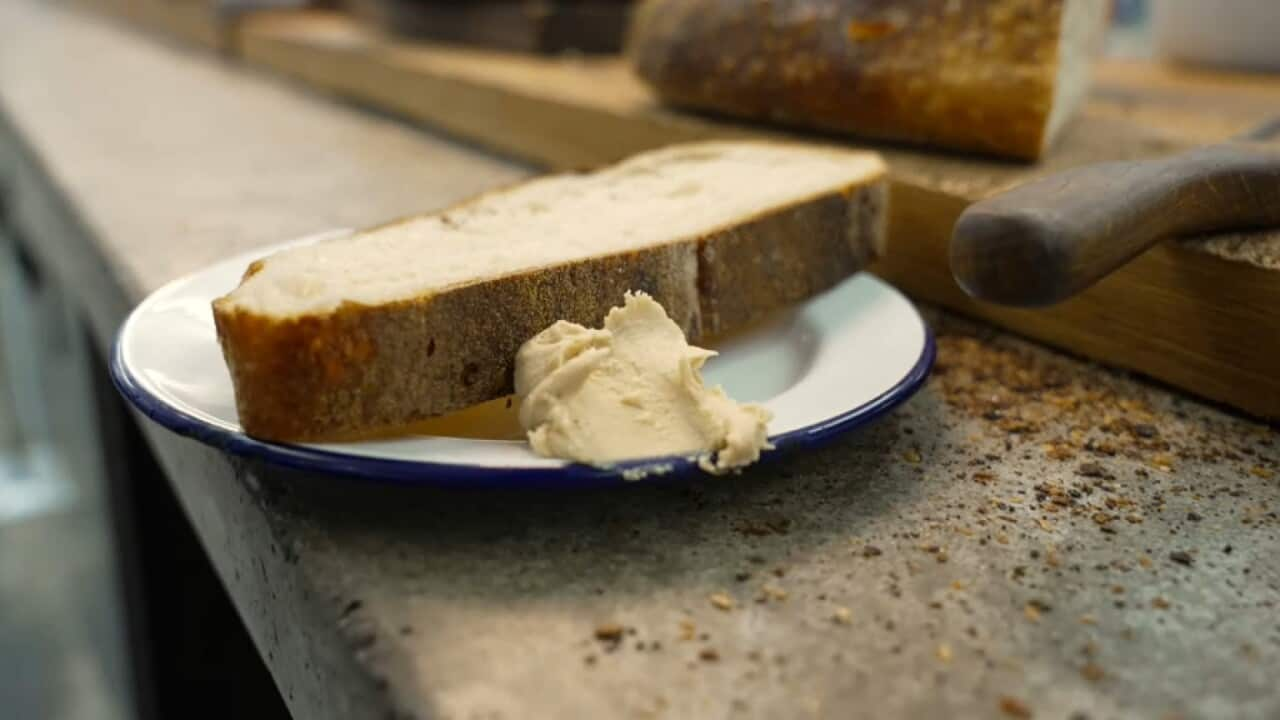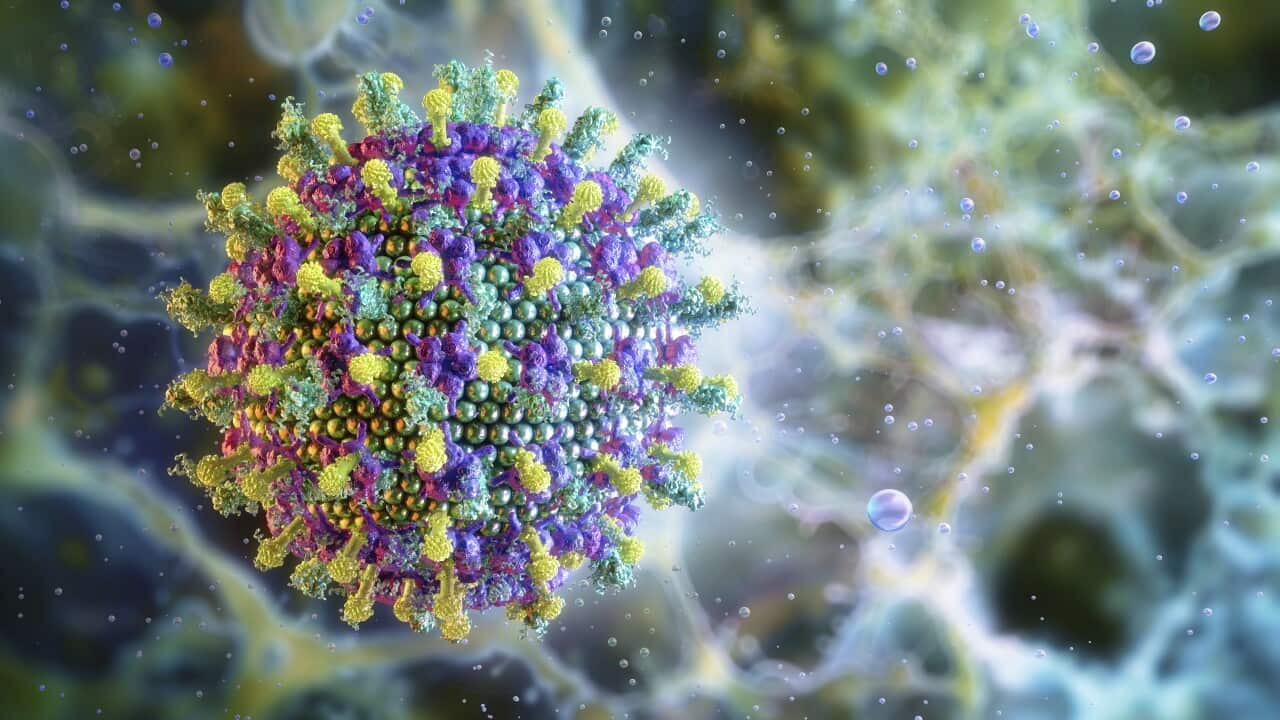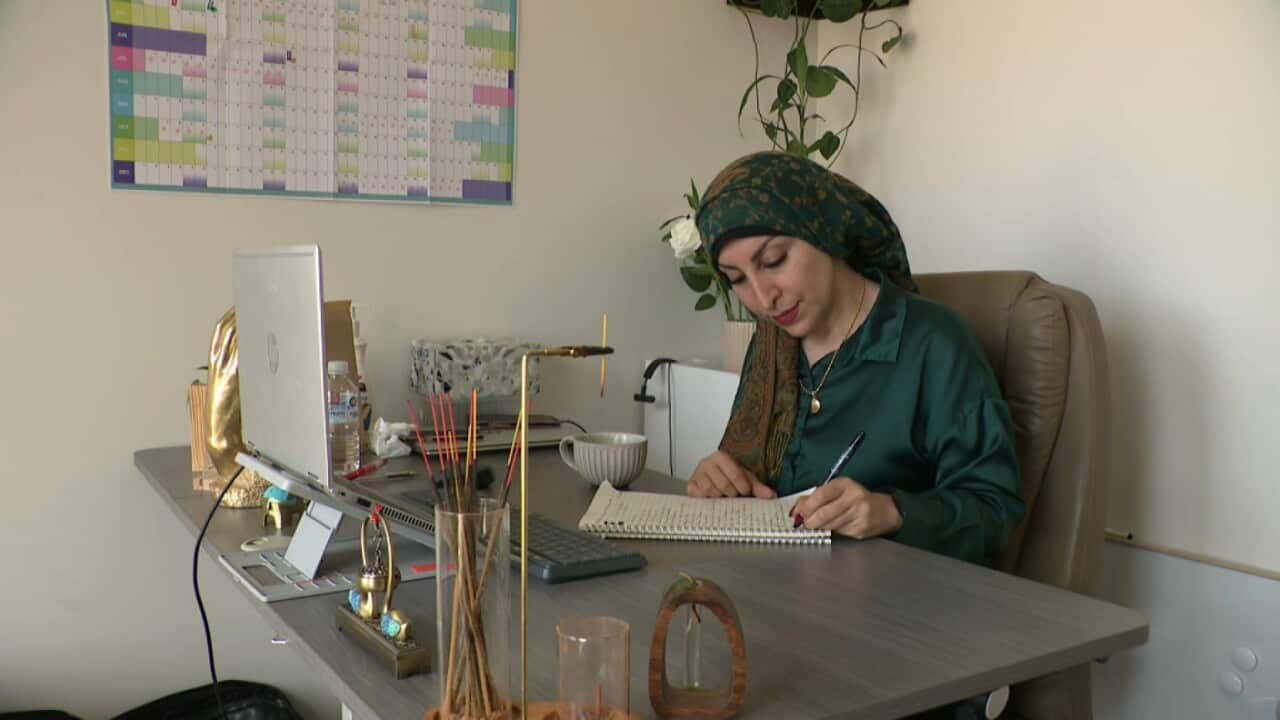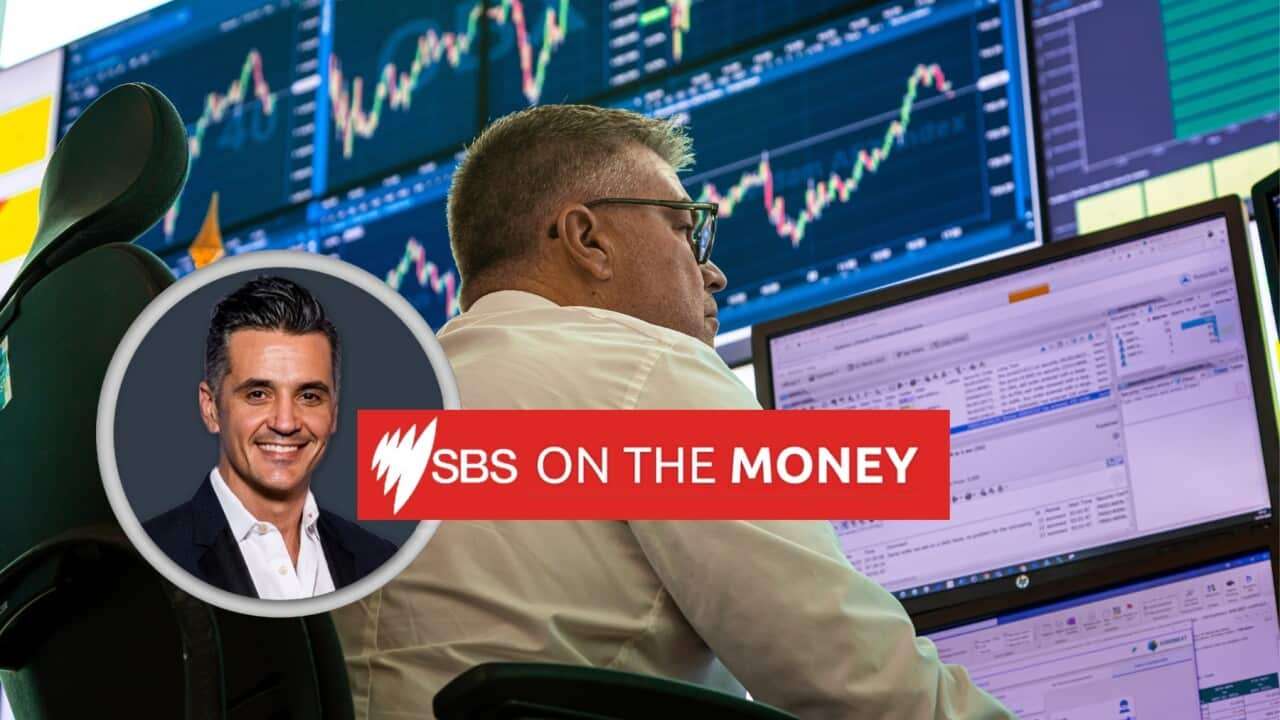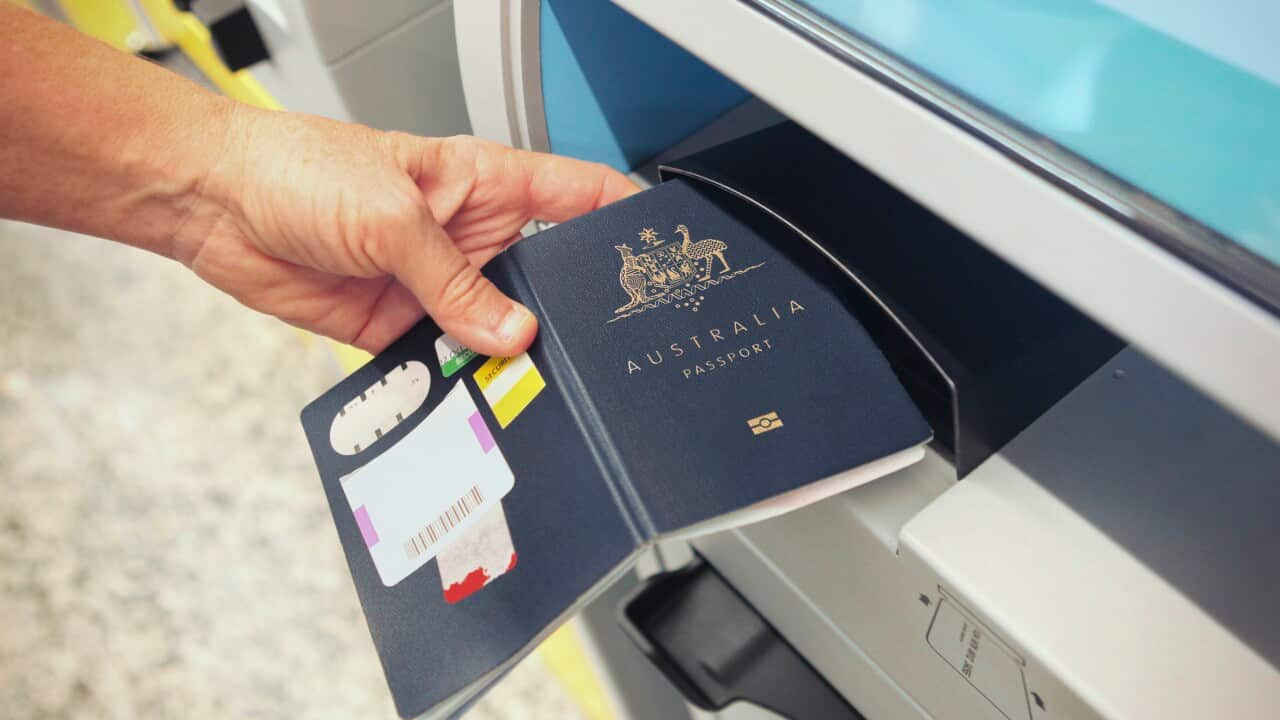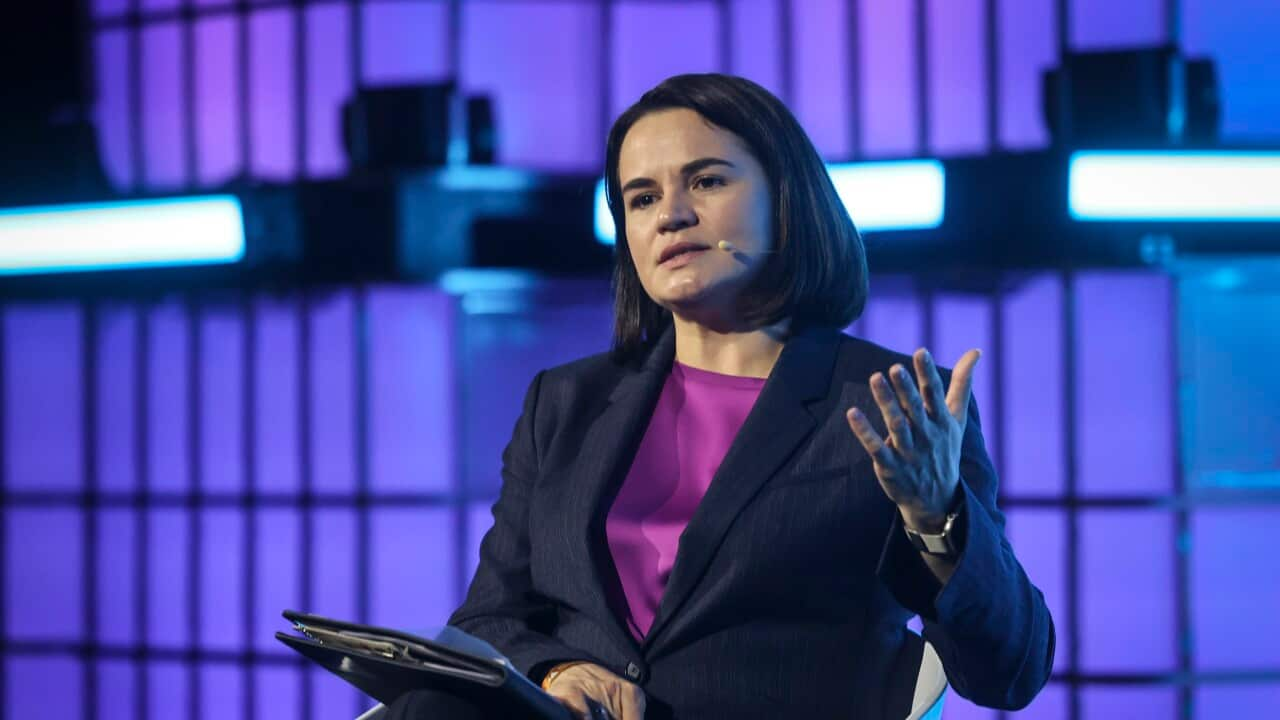Listen to Australian and world news, and follow trending topics with SBS News Podcasts.
TRANSCRIPT
It's the weekday lunch rush and diners at 'Kitchen by Mike' - a popular restaurant in the Sydney CBD are among the first in the country to try a curious new cuisine.
Acclaimed chef Mike McEnearney's much-loved sourdough bread is now being served with what's known as 'cultured Japanese quail spread.'
"So the cultured quail is folded through the butter. I would describe it as incredibly strong and mammy flavor with a texture of butter. So if you like strong chickeny quail flavors, it's in the texture of butter on bread., it's delicious, it's almost like pâté."
So what makes it so unique?
Well, the quail meat in the butter did not come from a farm, rather it was produced in factory in the inner Sydney suburb of Alexandria - about a 20 minute drive from the restaurant.
'Cultured meat' is the process of taking a small amount of cells from an animal - in this case, a quail - and growing them in a factory-like setting to eventually produce a type of meat product.
"My first time in 35 years of cooking that I've seen a new category come to market. It's really exciting. It is brand new food."
And the verdict from diners?
Diner 1: "Yeah I'd say it's pretty adventurous, Mike was mentioning it's pretty revolutionary. It's quite new in the industry so I'm glad to have tried it."
Diner 2: "Pâté, like a smokey pâté. Really unusual taste but quite nice, I'd definitely have it again. "
Diner 3: "I really like the innovative nature of it and I think I'd be really happy to see it more on menus.”
From hatted restaurants to pubs, around a dozen restaurants across Australia have this week begun serving the cultured quail. About a dozen more will have it on their menu by the end of the month.
The product is the brainchild of Australian start-up Vow, which in June became the first company in the country to be given the greenlight to sell cultured meat.
It follows a more than two year approval process by the food safety regulator, F-S-A-N-Z.
Ellen DInsmoor, Vow's Chief Operating Officer, insists the company is not trying to replace meat.
"So what we make is very unique in that it's not plant-based, we're not trying to recreate beef and other meats we eat today. We're taking different cells from other animals, growing those and then using them to make new food products."
She says the quail cells are grown in a bioreactor, which is essentially a large stainless steel tank, similar to what you might see in a brewery.
"We take actual cells from animals and we grow them in what I think of as a nutrient broth, which is essentially recreating the conditions in which cells grow in our body or in an animal's body that has amino acids, salts, sugars. At the end of the day, you can harvest those cells out. Maybe imagine that if you're making cheese and you are taking some of the whey off the top, that's kind of what it looks like when you harvest the cells out. And then we can take those cells as a really beautiful, pure ingredient, really rich form of protein, another nutrient, some craft those into finished food products."
While the product only made its debut in Australia this month, for the past year, it's been available in Singapore - the first country globally to approve the sale of cultured meat.
So why produce food this way? Paul Wood, a Professor in Biotechnology at Monash University explains.
"Well, for some people it's because they don't want to see animals harmed. For others, it's an environmental thing. They believe that this is going to be a more sustainable way of producing food. Some just say it's a new food experience. So there's a range of ways that it's being sort of marketed to people."
But he says, until the industry scales at large it remains unclear whether it will be more sustainable than farming.
"It will use less land. It's a factory. It'll probably use less water. But we know already that on an energy basis, it's unlikely to be more sustainable because it's quite an energy intensive process. So you really need to be using totally renewable energy. And even then, if you compared it to growing an animal in a paddock, it's still a hell of a lot more intensive."
He says cost is another challenge, and when it comes to nutrition:
"It's unlikely, I think, to be better than a piece of meat, a three dimensional with a lot of iron in there, a lot of vitamins, B12, et cetera. So we talk about meat being an energy dense or a nutritionally dense product, you're going to have to add back minerals and vitamins to this product. There's only one single cell type."
But others believe the industry has a role to play in addressing future food challenges.
By some estimates, agricultural production will need to increase by around 60 percent by 2050 to meet the demands of the growing population.
Sam Perkins is the CEO of Cellular Agriculture Australia, a not-for-profit that seeks to advance cellular agriculture, which is the process of using cells to create products.
"We see cellular agriculture and the technologies that sit within it as a way of complimenting existing food supply chains and move towards a more future-proof food system where the technologies offer the potential to reduce greenhouse gas emissions, reduce land use and reduce water use, whilst also building resilience, particularly around things like climate shocks or supply chain disruptions and emerging threats like zoonotic diseases as we've seen recently through avian flu."
The technology is currently being harnessed to make everything from coffee to palm oil, leather and chocolate.
But scaling the industry remains a challenge and calls for better investment come as countries take steps to ban sale and consumption of cultured food, Italy, France and some US states among them.
Concerns over quality and the threat to farmers are among the issues driving the pushback.
The Italian farm lobby has labelled it ‘Frankenstein meat.'
Perkins says misconceptions around the concept of cultured meat are feeding 'unhelpful narratives.'
"One thing we hear a lot is references to things like lab-grown meat. Cell ag products aren't produced in labs, even if the original technology was developed by scientists. They're made in food manufacturing facilities that look far more like breweries than they do a science lab."
But the industry has a long way to go. Vow is one of only three companies globally approved to sell cultured meat. Getting governments, investors and consumers on-board remains a challenge.
